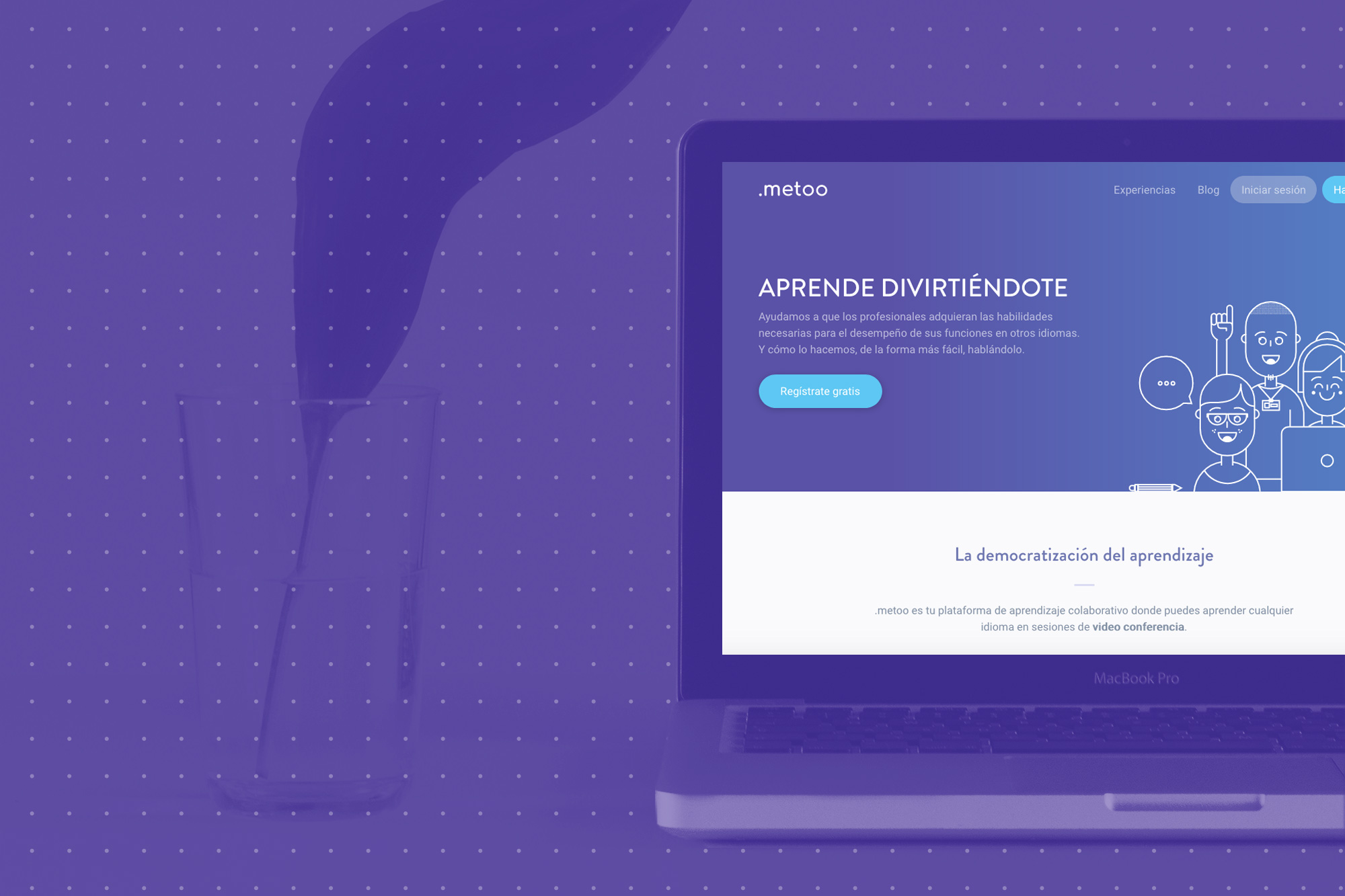Hi buddies, en el post de hoy os dejamos 10 expresiones útiles que hacen referencia a la toma de decisiones.
Algunas de las más comunes son:
To make a snap decision
To be in two minds about something
To have second thoughts on something
To take something into account
To change one’s mind
To have the final say
To give something a lot of thought
To dodge an issue
To keep in mind
To back someone’s decision
Y éstos son algunos ejemplos para que os ayuden a aclarar el significado y veáis cómo se usan en contexto:
Time was pressing and we needed to make a snap decision. (=make a quick decision)
They’re in two minds about accepting our proposal or not. (=they are not sure about it)
I said I will attend the event but now I’m having second thoughts on it. (=now I don’t think it’s a good idea)
There are several aspects to take into account before deciding.(=to consider)
He agreed to participate in this project. However, last week he changed his mind.(=he changed his opinion)
The boss has always the final say in financial decisions. (=he has the final decision)
We’ve given this issue a lot of thought.(=we have thought about it a lot)
She wasn’t able to address the problem and dodged the issue. (=to avoid a difficult situation)
They also need to keep in mind the consequences of this decision.(=to consider)
All of us backed his decision to relocate the factory.(=to give support to someone)
Toma nota y pon en práctica alguna de ellas en tu próxima reunión.

Ahora que comienza el curso seguro que muchos os estáis planteando de nuevo el tema de aprender inglés o retomarlo donde lo dejasteis (si es que ya lo hacíais). En cualquier caso, este post te servirá de ayuda ya que os damos algunos consejos y recursos con los que verás cómo aprender inglés por tu cuenta.
Y es que siempre nos pasa lo mismo, y me incluyo en el saco, nos proponemos ponernos en serio con algo plenamente convencidos y seguros de que cumpliremos a pies juntillas pero vamos a reconocerlo, ponerse a hacer algo por uno mismo parece que cuesta más esfuerzo. Es importante partir de dos conceptos fundamentales: motivación y disciplina.
Y teniendo en cuenta todo lo anterior y tanto si estás pensando en tomar clases como si no, estos tips te van a resultar super útiles porque son perfectamente compatibles en ambos casos, de hecho incluso verás que avanzas más rápido y le sacas más partido. Ahora sí, vamos a ver cómo aprender inglés por tu cuenta de una forma sencilla. Comenzamos!
PASO 1: motivación y disciplina
La motivación es importante porque va a ser lo que nos impulse a comenzar pero tan importante, o incluso más diría, es la disciplina. La disciplina implica crear una rutina, unos horarios, en este caso de estudio y práctica y ceñirnos a ellos, incluso cuando no estamos tan motivados, cuando estamos cansados, cuando no tenemos un buen día, etc hay que ponerse a ello y seguir avanzando aunque sea paso a paso.
Por tanto, este sería el primer punto, piensa con calma cuánto tiempo y esfuerzo quieres dedicarle cada día/semana y a partir de ahí empieza a organizar tu horario. Es esencial que le dediques tiempo de manera regular, si puede ser cada día mejor, es decir, vale más dedicarle 15-20 minutos todos los días y no saturarnos, que ponerte 6 horas seguidas el fin de semana. Aunque aquí cada uno sabe cómo funciona mejor, si es tu caso, adelante! se trata de encontrar la fórmula que funciona para ti a la hora de aprender inglés por tu cuenta.
PASO 2: ¿por dónde empiezo?
Buena pregunta, pues una buena idea puede ser hacer un test de nivel, porque eso nos va a permitir saber dónde estamos, sobre todo si partimos de una base más básica, o si hace tiempo que no lo usamos, sirve también para «desempolvar» y ser conscientes de en qué punto nos encontramos.
Puedes encontrar muchos level test online, nosotros te recomendamos éste de cambridge
No es muy largo, son 25 preguntas y ves los resultados (aunque no las respuestas correctas) sin introducir ningún email. Recuerda también que es un resultado orientativo para que te hagas una idea.
PASO 3: ¿y después qué?
Vale, ya sé mi nivel aproximado y ¿ahora qué? Aquí el tema de cómo aprender inglés por tu cuenta ya se pone serio. Si ya hemos creado un horario toca «reunir» el material que vamos a utilizar. Esto es lo fácil y a la vez lo difícil, hoy en día en internet podemos encontrar de todo, usa tu buen criterio y ves probando cosas que te gusten y decide las que se adaptan mejor a ti.
Algunas de nuestras recomendaciones
Para darle un repaso a la gramática: sin duda, no puede faltar el archiconocido libro English Grammar in Use de Raymond Murphy, lo tienes en varios niveles.
Si lo tuyo es más practicar y hacer ejercicios online puedes empezar con algunos de los siguientes:
Oxford University Press
English Grammar
My english pages
Agenda Web
English Grammar Online
Para mejorar tu vocabulario: tienes los libros de English Vocabulary in Use (de Cambridge también). Además la mayoría de los enlaces anteriores tiene también secciones de vocabulario (y en general un poco de todo). Es muy interesante la parte de vocabulario y speaking del examen IELTS (aunque no lo estés preparando) porque aprendes vocabulario por áreas temáticas o puedes leer también algunos de nuestro mejores posts, aquí tienes una recopilación
Para desarrollar tus listening skills: aquí tienes variedad, desde ejercicios de listening hasta podcasts, audiolibros, ver canales en youtube en inglés (incluso si no son relacionados con aprender inglés), por supuesto ver series y pelis en inglés, todo lo que sea «hacer oído» te va a venir muy bien a la hora de aprender inglés por tu cuenta. De nuevo, encuentra los temas que más te interesan, mira éste post para ver más recomendaciones.
Con respecto al reading y al writing: si no quieres complicarte la vida busca sitios donde tengan recursos para preparar cualquiera de los exámenes (FCE, CAE, IELTS, TOEFL, TOEIC…), sobre todo para la parte del writing porque allí verás modelos o pautas para hacer diferentes tipos de writing además de encontrar readings de todo tipo. Pero la parte del reading también es flexible, puedes por supuesto leer blogs en inglés, leer las noticias y otras cosas que te interesen y si te gustan los libros prueba la «lectura adaptada». ¿Esto qué es? Pues hay varias editoriales que tienen lo que se llama «graded readers» es decir, libros adaptados por niveles (del nivel 1 al 5 ó 6 ), lo que significa que incluso teniendo un nivel básico podrás comenzar a leer en inglés, genial verdad? Algunas referencias
Macmillan
Pearson
Oxford University Press
Penguin
PASO 4: enjoy!
Muy importante, disfruta! aunque todo esto suene a mucho trabajo no tiene porqué ser un rollo, hazte un plan en el que vayas variando, un día ejercicios de gramática/vocabulario, otro día un listening, que puede ser escuchar tu música favorita con la letra de la canción, otro día leer un blog y así. Busca también cosas que no estén necesariamente relacionadas con el inglés si no con tus hobbies o temas de tu interés, que te gustan los videojuegos pues te pones los textos también en inglés, que te gustan las manualidades, ponte a ver videos en youtube, que eres un experto en algo, ayuda a otros en foros… tienes muchas posibilidades. Sé ambicioso y pon todo de tu parte pero sé también realista y paciente. De vez en cuando, párate a pensar en todo lo que ya has conseguido y prémiate por tus progresos, que aunque no siempre los veas están ahí.
PASO 5: ¿y el speaking?
La parte del speaking, esta es la parte un poquito más complicated de cómo aprender inglés por tu cuenta pero no por ello hay de desanimarse, vamos a lo fundamental, no hay ningún secreto todo es ponerse y practicar cuanto más a menudo mejor y para ello es fundamental perder el miedo y la vergüenza como comentamos en este post.
Y una vez dicho esto una de las opciones más fáciles es un intercambio de idiomas o language exchange, de nuevo busca sitios (online y offline) para poder poner en práctica todo el vocabulario y estructuras en los que has estado trabajando por tu cuenta.
Pero si lo que te resulta complicado porque no eres muy disciplinado a la hora de ponerte a aprender inglés por tu cuenta es el speaking, no te preocupes siempre puedes contar con la ayuda de un buen profesor, que además de hacer correcciones puede guiarte y motivarte sea cual sea tu nivel y tu objetivo.
Por cierto, ¿Sabías que en .metoo realizamos clases de inglés online? Si, si déjame que te cuente un poco más sobre nuestras clases.
???????? Nuestros profesores son todos titulados y con mucha experiencia.
???????? Las clases se realizan a través de vídeo conferencia sin que tengas que instalarte ningún programa con skype, hangout o cualquier otro. Nosotros nos encargamos de todo, tú solo necesitas internet en tu ordenador/tablet/móvil.
????♀️ Con un profesor en vivo y en directo, nada de video tutoriales.
???? Tu decides cuándo y dónde. Nuestros horarios son flexibles y puedes hacerlas desde la oficina, desde la comodidad de tu casa o desde donde te apetezca.
???? ¿Y qué pasa si un día no puedes asistir clase?. Pues nada! la puedes cancelar y volver a reservarla en otro momento para que no pierdas ninguna.
???? Además al finalizar la clase tu profe te enviará correcciones, aspectos a mejorar y recursos útiles que podrás consultar en cualquier momento y lugar dentro de nuestra plataforma.



